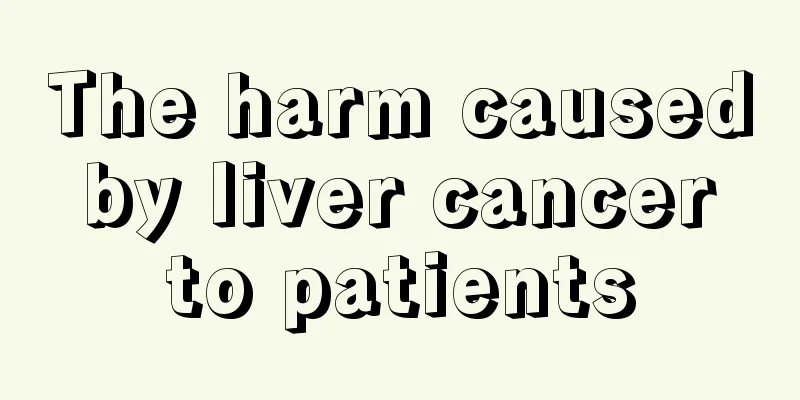How to treat respiratory tract infections in infants and young children?

|
Many people think that upper respiratory tract infection is a disease. In fact, it is not. It is a general term for a group of diseases, including many diseases, such as colds, pharyngitis, tonsillitis, etc. It also has a narrow definition that refers specifically to colds, and the incidence rate is very high. The incidence rate is highest among infants, especially in winter and spring. Since they occur so frequently, how do we treat upper respiratory tract infections? 1. Symptomatic treatment (1) Rest: Those with serious illnesses or the elderly and frail should rest in bed, avoid smoking, drink plenty of water, and keep the room well ventilated. (2) Antipyretic and analgesic drugs: If you have symptoms such as fever, headache, muscle aches, etc., you can choose antipyretic and analgesic drugs, such as compound aspirin, acetaminophen, indomethacin (indomethacin), analgesics, ibuprofen, etc. Throat pain can be treated by taking various throat lozenges such as lysozyme tablets, Jianmin throat lozenges, or the Chinese medicine Liushen Pills orally. (3) Decongestants can be used for nasal congestion. When the nasal mucosa is congested and edematous, pseudoephedrine hydrochloride or 1% ephedrine nasal drops can be used. (4) Antihistamines: Colds often cause increased sensitivity of the nasal mucosa, frequent sneezing and runny nose. Antihistamines such as chlorpheniramine maleate or diphenhydramine can be used. (5) Antitussives: For patients with more obvious cough symptoms, antitussives such as dextromethorphan and pentoxyverine can be given. 2. Treatment of the cause (1) Antimicrobial drugs are not required for the treatment of simple viral infections. When there is evidence of bacterial infection such as elevated white blood cell count, pharyngeal pus, and cough with yellow sputum, penicillin, first-generation cephalosporins, macrolides, or quinolones may be used as appropriate. It is rarely necessary to select sensitive antimicrobial drugs based on the pathogen. (2) Antiviral drug treatment There is currently no specific antiviral drug, and the misuse of antiviral drugs can cause influenza virus resistance. Therefore, if there is no fever, normal immune function, and the patient has been ill for more than two days, it is generally not necessary to use it. It can be used routinely in the early stages in immunocompromised patients. The broad-spectrum antiviral drugs ribavirin and oseltamivir have a strong inhibitory effect on influenza virus, parainfluenza virus and respiratory syncytial virus, and can shorten the course of the disease. 3. Treatment with traditional Chinese medicine Traditional Chinese medicine with heat-clearing, detoxifying and antiviral effects can also be used to help improve symptoms and shorten the course of the disease. Xiao Chaihu Granules and Isatis Root Granules are widely used. Patients should be careful not to get wet in the rain, not to be too tired, avoid upper respiratory tract infections caused by colds, avoid crowded places as they are prone to infection, and do not touch their mouth, nose, and eyes with their hands. Parents of infants should pay special attention and try to wear masks when going to crowded places. Insisting on physical exercise and improving immunity is the key. |
>>: Can I eat leeks if I have skin diseases?
Recommend
How is dried tofu made?
Everyone must have eaten dried tofu in the past, ...
Lung cancer patients please remember, don't let these 4 misunderstandings harm you!
Nutrition is a topic of concern to cancer patient...
What to do if you keep vomiting
In daily life, many people have experienced sympt...
What should I do if my cervical lymph node tuberculosis becomes suppurative? It turns out that this treatment is the most effective
Cervical lymphadenopathy is a common disease in d...
How long will it take for me to be able to exercise after teratoma surgery
Generally, you can start light exercise 2 to 4 we...
The schedule of the top student
There are many top students in our lives. For the...
What are the preventive measures for cervical cancer? What are the causes of cervical cancer?
The preventive measures for cervical cancer are m...
6 things to do before going to bed to prolong your life
The Chinese are a nation of longevity. Our ancest...
When brushing your teeth in the morning, your gums bleed. Here are some things to watch out for to prevent it
Many people will experience bleeding gums when br...
Analysis of the common causes of skin cancer
Many people may have heard of skin cancer. In fac...
Minoxidil solution usage and dosage
Minoxidil solution, its main therapeutic effect i...
What symptoms will lung cancer patients have? If three symptoms appear, beware of lung cancer
When the tumor blocks the bronchus, there is ofte...
What are the effects of Peikun
There is a lot of pressure in modern life, and we...
How long after steaming can I take a shower
You can take a shower 30 minutes after sweat stea...
What are the effective methods for adults to increase height?
I believe that height is a shortcoming of many pe...









